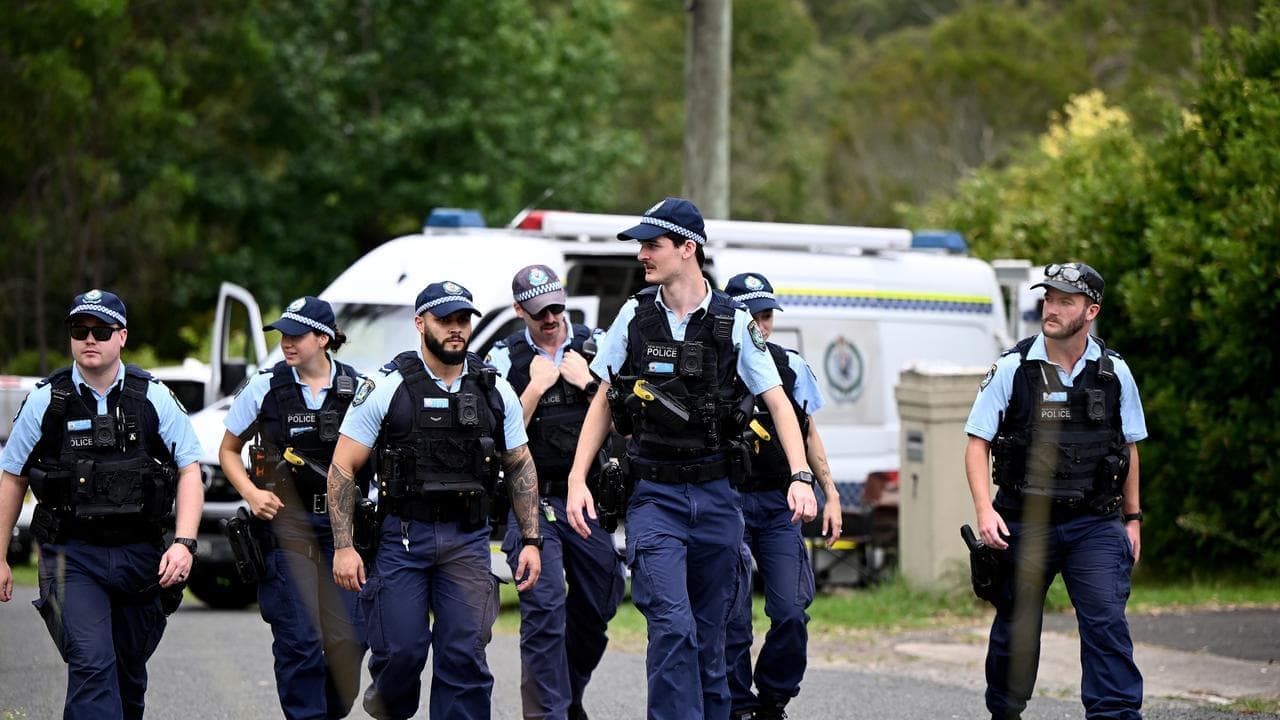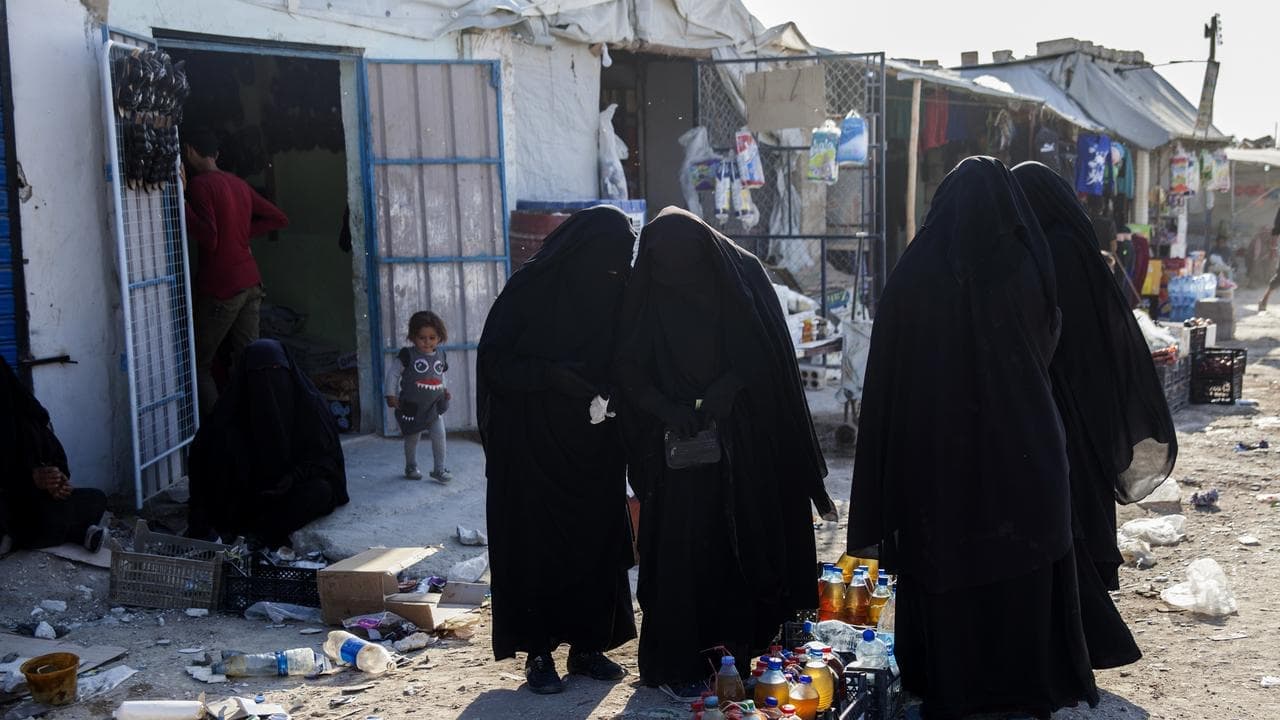WHAT WAS CLAIMED
COVID-19 vaccines are more deadly than the COVID virus.
OUR VERDICT
False. The research underpinning the claim is flawed. Death rates for vaccinated people are no higher than for unvaccinated people.
United Australia Party senator Ralph Babet is spreading a vaccine-sceptic trope that people are more likely to die from COVID-19 vaccines than the virus.
The claim is false. It is based on an unproven assumption COVID vaccines are responsible for hundreds of thousands of deaths.
Three vaccine data experts told AAP FactCheck the research underpinning Senator Babet's tweet was fatally flawed.
Studies comparing non-COVID mortality rates between vaccinated and unvaccinated people have found no evidence vaccines increase the risk of death.

Senator Babet made the claim in a tweet on April 14, 2023.
"Children under 18 are 51 times more likely to die from the mRNA vaccines than from COVID-19 if unvaccinated," he posted.
"Young adults in the age range of 18 to 29 are eight times more likely to die from vaccination than from COVID-19."
He also states people aged 30 to 39 are seven times more likely to die, people aged 40 to 49 are five times more likely, while those aged 50 to 59 are twice as likely to die.
Senator Babet cited the source of the figures as a 2022 journal paper co-authored by a Queensland-based agricultural science academic.
However, that paper is not the original source. Instead, it took the figures from data analysis published in early 2022 by US researchers Kathy Dopp and Stephanie Seneff.
Ms Dopp is a self-described "independent researcher" with a master's degree in mathematics.
Dr Seneff is a research scientist at MIT's Computer Science and Artificial Intelligence Laboratory with academic qualifications in biophysics, electrical engineering and computer science.
They have both previously shared COVID-related misinformation.
In 2021, Ms Dopp falsely claimed face masks deprived people of oxygen and made them sick.
In April 2023, Dr Seneff promoted a debunked conspiracy theory COVID vaccines make people infertile.

Their analysis included a series of calculations using UK Health Security Agency data covering the four-week period between January 10, 2021, and February 6, 2022.
The analysis included a comparison of death rates between vaccinated and unvaccinated individuals (table 1 on page 5 of the Dopp/Seneff paper and table 12b on page 43 of this UKHSA report) that appeared to fall in favour of vaccines.
According to the authors' figures, vaccinated people in all age groups except under-18s were at least 45 per cent less likely to have died with COVID (see table 2 on page 8 of the Dopp/Seneff study).
However, to reach their overall conclusion vaccines are more dangerous than COVID, the researchers cited another study that claimed vaccine-related deaths were widespread and hugely under-reported.
That study, co-authored by neurobiology academic Spiro Pantazatos and "independent research scientist" Hervé Seligmann, claimed COVID jabs were directly responsible for hundreds of thousands of deaths in Europe and the US, based on a claimed correlation between vaccine rollouts and a subsequent increase in mortality rates (page 2).
Ms Dopp and Dr Seneff used the Pantazatos/Seligmann paper to calculate the supposed risk of death from vaccination across various age groups.
Those calculations were the figures included in Senator Babet's tweet.
Neither the Dopp/Seneff paper nor the Pantazatos/Seligmann study were published in an academic journal.
The Pantazatos/Seligmann study was a pre-print, meaning its findings have not been substantiated by a scientific peer-review process.
The Dopp/Seneff data analysis was published on an open-access research repository called viXra, which states it accepts submissions from anybody and only rejects articles "in extreme cases of abuse".
ViXra concedes it is "inevitable" its platform contains research "many scientists will consider clearly wrong and unscientific".
Cherry-picking and promoting outlier studies while ignoring scientific consensus is a common tactic used by people seeking to undermine COVID vaccines.

Jeffrey Morris, a biostatistics professor at the University of Pennsylvania's Perelman School of Medicine who has written extensively about COVID-related deaths, told AAP FactCheck the research underpinning Senator Babet's tweet was seriously flawed.
Prof Morris said one way to test claims vaccines caused many deaths was to compare non-COVID mortality rates between people who have and haven't had the jab.
Credible studies comparing the two groups found mortality was the same or lower among people who had the jab, Prof Morris said.
This 2023 study by US researchers, published in an influential peer-reviewed medical journal called Vaccine, compared mortality rates of almost seven million vaccinated and unvaccinated individuals and found no increased risk of non-COVID death among vaccine recipients.
"In the context of widespread suggestions on social media that COVID-19 vaccines are unsafe, it is reassuring that we found no evidence of any association of COVID-19 vaccination with increased risk of death," the researchers concluded.
This 2023 pre-print study from the Netherlands compared non-COVID mortality rates among vaccinated and unvaccinated individuals and similarly concluded there was no indication vaccination increased the risk of death.
"If the vaccines were inherently dangerous and causing high numbers of deaths (as some claim), we would see broad increases in non-COVID-19 deaths after vaccination, but we don't," Prof Morris told AAP FactCheck in an email.
Dr Chris Baker, a biostatistics expert at the University of Melbourne, told AAP FactCheck there were "clear issues" with the Pantazatos/Seligmann study that made its findings difficult to accept.
"A correlation between vaccine coverage and deaths isn't sufficient to conclude that deaths are caused by the vaccine," Dr Baker said in an email.
"For example, a large number of COVID cases can lead to both extra deaths and more vaccination. In this example, vaccination and deaths would be correlated, but the deaths are not caused by vaccination."
Dr Baker also questioned the study's findings that vaccination was strongly correlated with vaccine-induced deaths in some months but not others.
"I find this quite odd," Dr Baker said.
"How could the vaccine be deadly in one month and then not the next?"

Gideon Meyerowitz-Katz, an epidemiologist from the University of Wollongong, also questioned the Pantazatos/Seligmann study's findings.
"The paper itself is an extremely poor-quality analysis of some publicly-available data that correlates population-level death and vaccination rates," he told AAP FactCheck in an email.
"They argue that since these two things correlate fairly well, we should consider the deaths related to vaccines.
"I would say that the study as a whole is largely meaningless scientifically.
"I think in general people prefer to read evidence that agrees with their beliefs, but in the case of vaccines for COVID-19 there is overwhelmingly strong evidence that the vaccines have saved a large number of lives."
AAP FactCheck has previously debunked many false claims about alleged vaccine-related deaths, including here, here, here, here, here and here.
When contacted for comment, Senator Babet's office asked for the data relied upon by AAP FactCheck as well as the names, qualifications and credentials of the experts spoken to. However, his office did not respond further and did not answer questions relating to the claim.
The Verdict
The claim that people are more likely to die from COVID vaccines than from the virus is false.
The claim is based on figures taken from a research paper published by two US vaccine sceptics. That paper based its calculations on claims made in another paper that COVID vaccines caused hundreds of thousands of deaths in the US.
But experts told AAP FactCheck the research underpinning the claim was flawed and unreliable. Comparisons of non-COVID mortality rates between vaccinated and unvaccinated individuals have found no increase in deaths by people who received the jab.
False - The claim is inaccurate.
AAP FactCheck is an accredited member of the International Fact-Checking Network. To keep up with our latest fact checks, follow us on Facebook, Twitter and Instagram.












